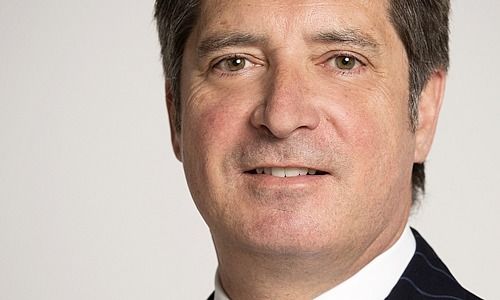He used to be one of Switzerland's most influential bankers at the top of J.P. Morgan's local unit. Even after having left the world of the banking giants, Pascal Ravery remains formidably connected – and a man in demand.
To take contact with Pascal Ravery nowadays, suffice to send an email. No more receptionist, no spokesperson, no disclaimer when you meet up – quite a change after 30 years managing at the top of banking.
The Frenchman, armed with the country-specific MBA from Insead at Fontainebleau, has served the most powerful investment banks of this world. Seven years at Goldman Sachs in London and New York, where he was one of the first non-Anglo-Saxon appointed to the top management. After that, 23 years as a manager at J.P. Morgan.
There, he was in charge of investment banking in France. He became chief executive of the Swiss business and later chairman. That qualified him as one of Switzerland's most influential bankers.
Signals From Your Body
In 2014, his body rebelled. A serious injury forced him to reconsider his style of life, Ravery told finews.ch in an interview. «I believe, my body sent me a signal telling me to change the way I work,» he says, looking back. «And it confirmed my already existing thoughts about the business.»
The 59-year-old in 2015 founded Lakeside Capital Advisers in Baar, a city close to Zug. Since the beginning of the year, Lakeside Capital is fully operational – or rather, Ravery is fully operational. The man who once was in charge of high-powered banking teams is now doing everything by himself. He doesn't want to build a new team, or manage one: «I enjoy the freedom after three decades at big banks.»
Juggling Mandates
Freedom doesn't mean leisure time. After leaving J.P. Morgan he could have devoted his time to family and horse-riding, a passion of his. Instead, he's juggling with seven mandates – and significant ones at that.
Ravery for instance advised the board of Syngenta when it resisted the takeover bid by Monsanto. And he also assisted the Swiss chemicals makers during the takeover negotiations with Chemchina.
The Frenchman has also been called upon to advise the Sika heirs – the Burkhard family – in their complex conflict with the management of the company. The Burkhard family wants to sell the Swiss maker of building materials to Saint-Gobain, its French rival, against the will of the management and board. Ravery says he had been contacted shortly before the last annual general meeting and delivered his advice. He maintains the hope that a constructive solution can be found despite the «complex and tense situation.»
Independence and Discretion
Ravery also was involved in the sale of SGS and the merger of Lafarge and Holcim – which of course had been put in motion at the beginning of 2014.
To deliver independent and discrete advice is what Ravery is selling. His customers are boards and owners looking for a trustworthy advisor in difficult situations.
He is happy to advise upstream, presenting an early assessment before a deal is being put together. Or downstream, together with investment banks, if a new angle to a transaction is required.
Trendsetters
His advice is much sought after. Lakeside Capital in the first quarter of the year advised on deals with a volume totalling $46.6 billion, «Finanz und Wirtschaft» (report behind a paywall) reported. Starting from scratch, the one-man-show has taken the 13th place in a ranking of mergers and acquisitions advisers worldwide.
Success breeds success. Alix Partners has been quick to take Ravery on board as a senior adviser of its Swiss team. Ravery doesn't expect that mandate to stretch his resources.
Ravery is not alone as an independent adviser with a past career at a banking giant. Centerview Partners is one, co-founded by former UBS bankers, or Perella Weinberg Partners, with a past at Credit Suisse.
More Than Just Analysis
The boutiques success is not helping the reputation of the investment banks. They are seen as deal-driven and not fully trustworthy by company owners. The big banks also stand accused of employment armies of youthful bankers instead of a few seriously experienced dealmakers.
Ravery abstains from commenting, but says: «The top decision makers value experience and decision-making power more than the mere analysis.» Which of course is an advantage for him.































